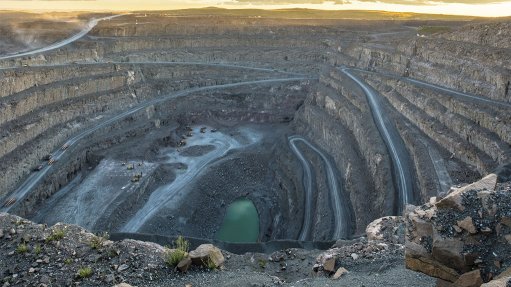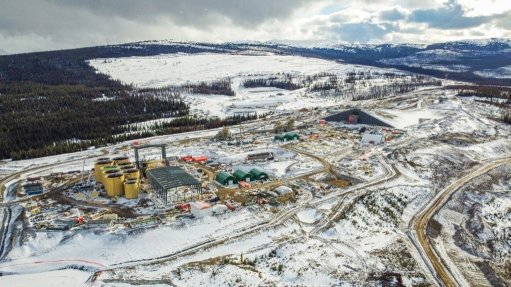Exploration Strategy hints at future amendments to MPRDA, Webber Wentzel informs
South Africa’s Exploration Strategy, published in April 2022, contains a number of praiseworthy suggestions to ensure the country increases its share of global spending on minerals exploration.
However, it also contains some hints – which appear to have been largely overlooked by the industry – of possible future changes to the Mineral and Petroleum Resources Development Act (MPRDA), touching on sensitive issues such as security of tenure and transformation, law firm Webber Wentzel partner Giada Masina says.
“The document clearly identifies South Africa’s key attractions for minerals explorers, as well as the factors that inhibit development in the sector. Some of the strategies it identifies to attract more investment are clearly essential, such as increased mapping by the Council for Geoscience and incentivising investment for junior miners, either through direct support or by identifying projects for public/private partnerships,” she outlines.
The Exploration Strategy also suggests that some areas of legislation need to be amended.
This includes providing longer timelines in the MPRDA for prospecting rights, since it may take longer to prospect in complex geological settings and current timelines do not allow sufficient time to conduct a proper feasibility study in certain instances, which would impact an explorer’s ability to secure investment for a project.
Also, to deal with the large number of inactive prospecting rights, which are said to be sterilising mineral potential, the department suggests invoking transformation legislation for the establishment of a "junior exploration fund".
The strategy mentions an Industrial Development Corporation-established fund, which is aimed at encouraging established mining companies to make financial contributions that would be used to support junior miners, Masina points out.
Also relating to transformation, the strategy identifies the need for regulatory clarification, and, importantly, possible changes to legislation.
“We know that in the Mining Charter review application the judge made the point that the legal mechanism that should be used to achieve government’s higher ownership targets should not be a policy document, such as the Mining Charter, but rather changes to legislation. The Strategy recommends that critical social partners be reconvened to enter into a social compact to achieve meaningful transformation,” Masina notes.
“Importantly, the document notes that the ‘first come, first served’ principle has the unintended consequence of promoting mediocrity. The intention is to replace it with some sort of meritocratic system that considers national development imperatives.
“This would, of course, require an amendment to the MPRDA. Such an amendment was proposed previously, and it caused quite a lot of alarm, because it would raise uncertainty about the criteria for obtaining a licence and would undoubtedly increase the potential for unethical behaviour and corruption,” she outlines.
The strategy concluded that land planning legislation and the National Environmental Management: Protected Areas Act do not adequately consider mineral development requirements in its applications. This necessitates streamlining the requirements in various pieces of legislation to enable timeous authorisations and security of tenure for exploration permit applicants, Masina avers.
The Exploration Strategy also sets out several aspects aimed at improving administrative processes and preventing the sterilisation of exploration opportunities.
This includes formally invalidating prospecting rights that legally have expired and updating departmental records to ensure that those areas are not sterilised from further exploration. This would be done through government’s planned improved mining cadastre system, which is currently well behind its scheduled delivery date, Masina notes.
Also, to deal with the large number of inactive prospecting rights, the department would need to strengthen its administrative processes, reintroducing the "use it or lose it" principle, Masina says.
Moreover, she notes that, in relation to the frequent issue of holders of prospecting rights encountering obstacles in accessing privately-owned land, the strategy proposes better use of the provisions of Sections 54 and 55 of the MPRDA.
Section 54 sets out a "dispute resolution type process" which can be used when landowners refuse access to land and Section 55 allows the Minister to expropriate land for the advancement of prospecting and mining.
Masina says Webber Wentzel believes the proposed changes to legislation outlined above are currently on the back burner, as the government’s current legislative priority for the mining industry is to facilitate self-generation of power.
However, the firms urges the industry to be prepared for further discussions on issues that were contested in the past, as these may well be contested again in the future.
Comments
Press Office
Announcements
What's On
Subscribe to improve your user experience...
Option 1 (equivalent of R125 a month):
Receive a weekly copy of Creamer Media's Engineering News & Mining Weekly magazine
(print copy for those in South Africa and e-magazine for those outside of South Africa)
Receive daily email newsletters
Access to full search results
Access archive of magazine back copies
Access to Projects in Progress
Access to ONE Research Report of your choice in PDF format
Option 2 (equivalent of R375 a month):
All benefits from Option 1
PLUS
Access to Creamer Media's Research Channel Africa for ALL Research Reports, in PDF format, on various industrial and mining sectors
including Electricity; Water; Energy Transition; Hydrogen; Roads, Rail and Ports; Coal; Gold; Platinum; Battery Metals; etc.
Already a subscriber?
Forgotten your password?
Receive weekly copy of Creamer Media's Engineering News & Mining Weekly magazine (print copy for those in South Africa and e-magazine for those outside of South Africa)
➕
Recieve daily email newsletters
➕
Access to full search results
➕
Access archive of magazine back copies
➕
Access to Projects in Progress
➕
Access to ONE Research Report of your choice in PDF format
RESEARCH CHANNEL AFRICA
R4500 (equivalent of R375 a month)
SUBSCRIBEAll benefits from Option 1
➕
Access to Creamer Media's Research Channel Africa for ALL Research Reports on various industrial and mining sectors, in PDF format, including on:
Electricity
➕
Water
➕
Energy Transition
➕
Hydrogen
➕
Roads, Rail and Ports
➕
Coal
➕
Gold
➕
Platinum
➕
Battery Metals
➕
etc.
Receive all benefits from Option 1 or Option 2 delivered to numerous people at your company
➕
Multiple User names and Passwords for simultaneous log-ins
➕
Intranet integration access to all in your organisation

















